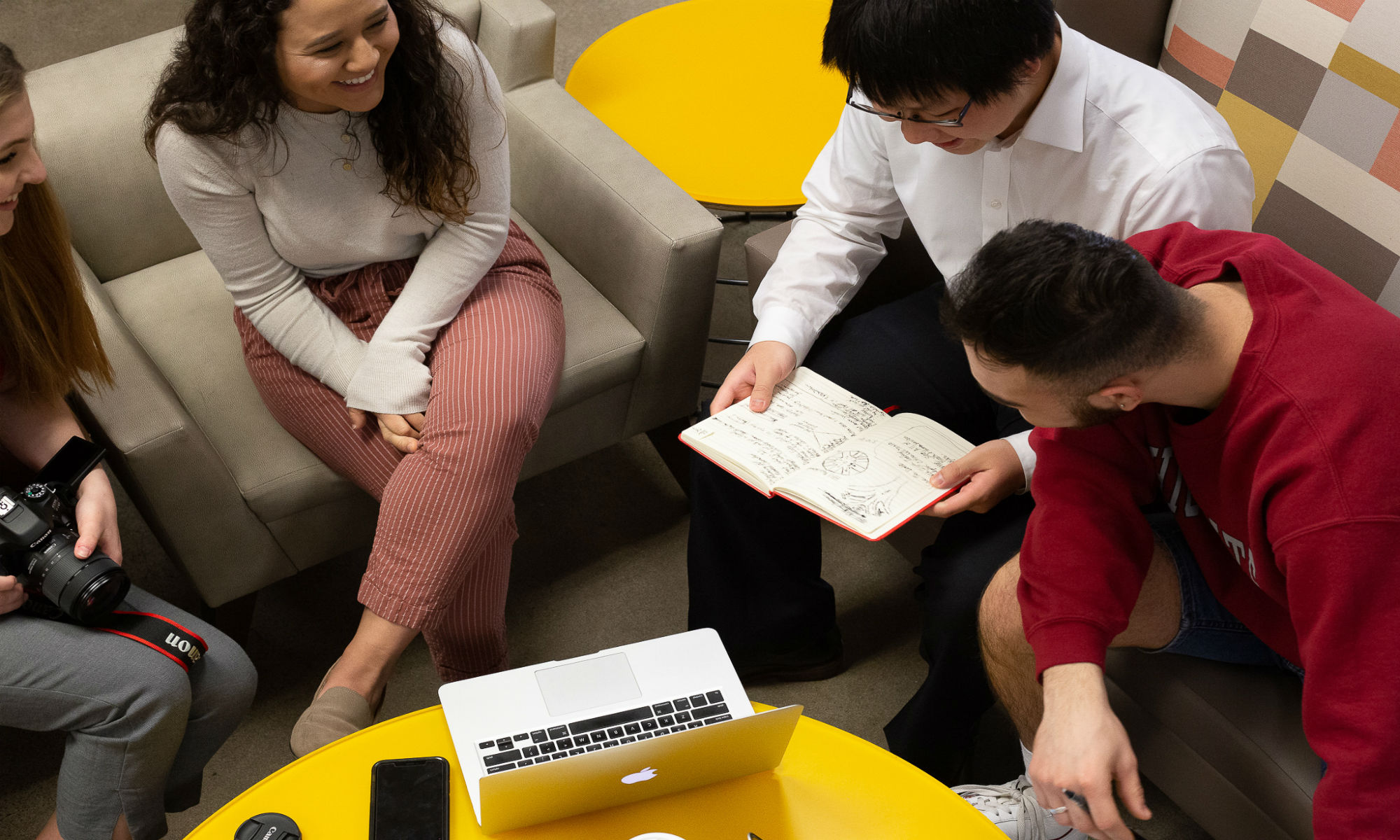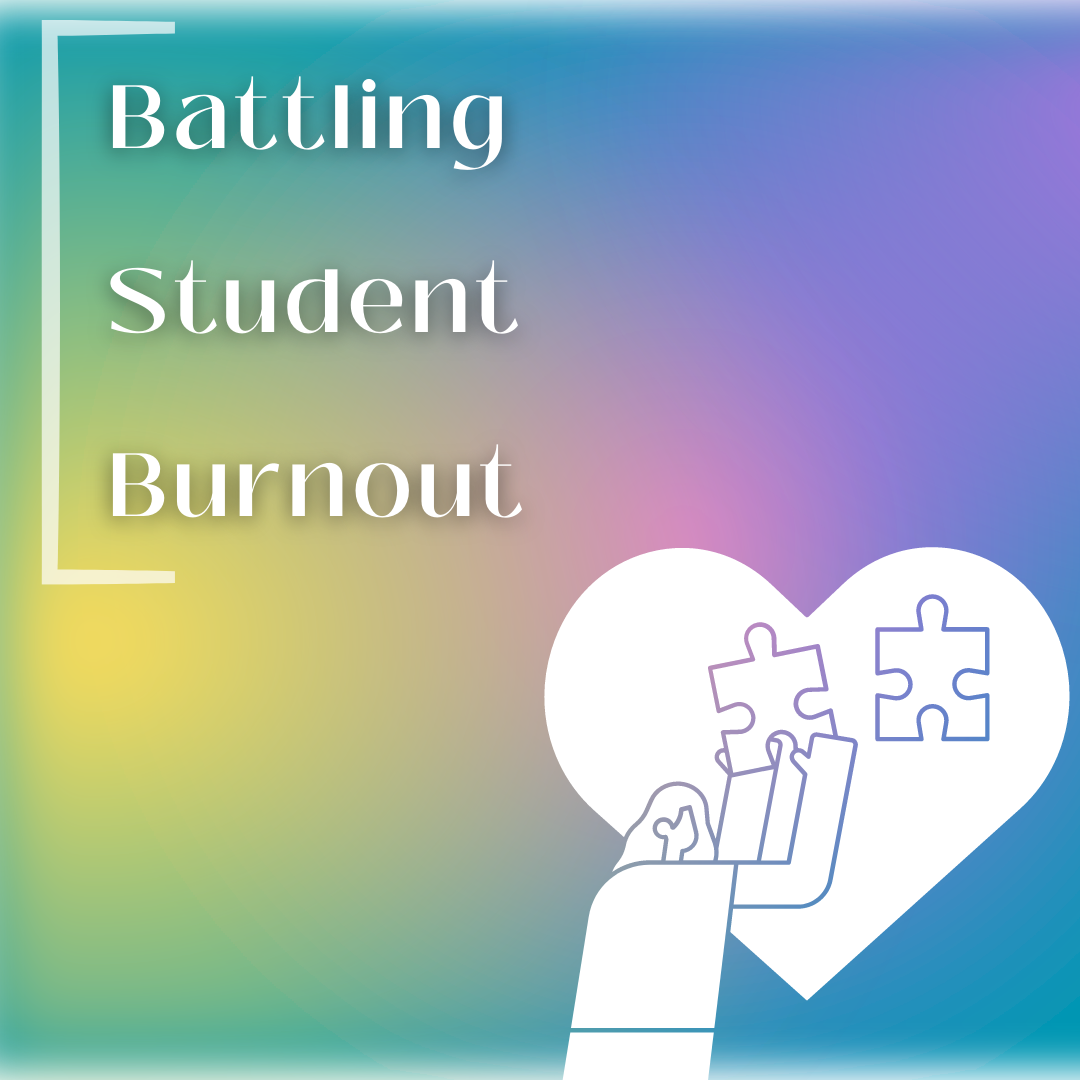By Paris Auerweck
As an overwhelmed college student staring down multiple mental health diagnoses, I have felt stuck in a hole more times than not. It can feel like there’s so much to do but nowhere to begin my thoughts.
The mental health crisis for teens and young adults has been increasing during high school and college years. The Healthy Minds Study during the 2020-2021 school year of 373 college campuses found that over 60% of students met the bill for at least one mental health issue.
I tend to overlook how much work it takes to be a full-time student. The pressures and responsibilities that come with it are heavy. It’s very easy to fall into a long spiral of I don’t know what to do.
While these feelings of hopelessness and depressive burnout may seem irreversible, there are ways to work on slowing down your thoughts to a less alarming level. Being a full-time student will always be hard work but, here’s what I have found helps me the most.
Don’t look at the big picture.
Although this may seem like bad advice, those with mental struggles find navigating countless deadlines, class schedules, extracurriculars and family life to feel utterly suffocating. There are hours I have wasted trying to calm down my anxiety but still repeating I have so much to do in my head. Taking your days one step at a time makes a huge difference. When I am feeling particularly overworked, I like to write down what I need to do only for that day. By the time the day is over, I’m at ease knowing I completed what I intended to.
Communicate your thoughts aloud.
Mental illness can make communication with others a challenge.
“Asking for help seems as easy as picking up a phone, but that phone can sometimes feel like it weighs a thousand pounds. It may be a simple notion but it takes practice.”
Speaking my thoughts verbally alone or in front of others helps me put things into perspective; I am not drowning and alone. There are others that will listen to and support me, as some may be going through the same feelings. Sharing your struggles with faculty, peers and friends can be uncomfortable but, leaving things unspoken proves worse for intrusive thoughts. When I say things out loud, they seem less intimidating and more achievable.
Listen to your body.
Even with a full schedule, I can often feel as though I am never doing enough. Sometimes it feels as though there is a voice in your head telling you to do more, what you are doing now is not quite good enough. When thoughts like this spiral around in your mind, your physical well-being can take a toll. This creates excess fatigue, worse sleep and much lower energy. If you take a step back and listen to what your body is saying, you realize that your thoughts are not telling you the truth, you are in fact doing enough. Pay attention to what your body is telling you; constant headaches, sore body, fatigue, changing eating habits and nausea could all be part of a bigger problem. It can be hard to make time for self-care but it’s important you do. Eliminate your distractions completely and give yourself the space to reflect on what you have done recently to make yourself feel good. If you fall short, start prioritizing your needs.
Change your environment
Being outside is a perfect reminder that things are constantly moving. When I am in a space of hopelessness or burnout, taking a walk alone helps me think clearer and doubt myself less. If you are stuck sitting in a place with nowhere to start, get out of your environment and see what perspectives change.
Balancing life as a student while trying to preserve your mental state can be done. It takes time and patience but, you have to acknowledge the problem openly and make it a priority. Mental well-being is integral to self-improvement and one’s overall health.
If you are struggling, you do not have to do it alone. Asking for help can put you in a great position to improve and grow as a person. Visit the California Department of Education’s Mental Health Resources page for more resources on where to start.




